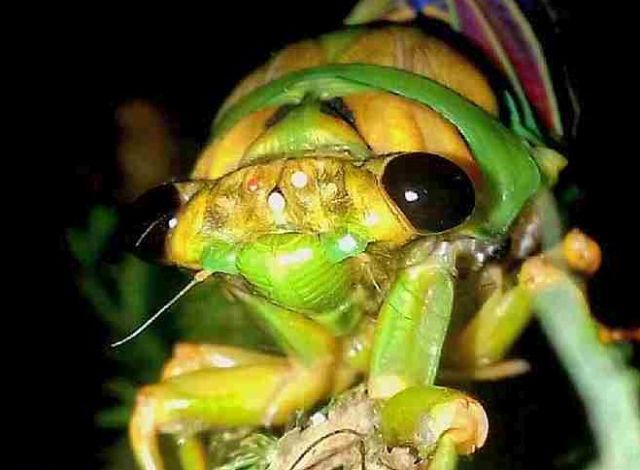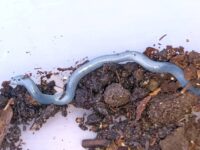 The Fijian Cicada (Raiateana knowlesi), in Fijian known as Nanai, is a periodic cicada that is endemic to the primeval forests on the island of Viti Levu, Fiji Islands.
The Fijian Cicada (Raiateana knowlesi), in Fijian known as Nanai, is a periodic cicada that is endemic to the primeval forests on the island of Viti Levu, Fiji Islands.
Cicadas are grasshopper-like insects that occur on all continents. Well over 45,000 species have been described worldwide.
The cicadas are insects sucking on plants and as such belong to the Hemiptera, which also includes the aphids and bugs.
The Nanai – Fijian Cicada is a Periodic Cicada
Some types of cicadas are called periodic cicadas.
These are species that spend the most part of their life underground feeding on roots.
They will then morph into an adult, come onto the surface of the earth and start looking for a mate to reproduce as soon as possible.

The females lay their eggs in the bark of branches, after which the adults soon die. Within a few weeks, the larvae hatch, drop to the ground, and burrow into the soil. There they remain for several years, feeding on the sap of tree and shrub roots.

The Fijian cicada spends about eight years underground as a larva before emerging as an adult. When the Nanai emerges from the ground, a new generation takes flight, continuing the cycle of life.

More about the Fijian Cicada (Raiateana knowlesi):
https://naturefiji.org/fijian-cicada-raiateana-knowlesi-nanai/

